Immigration to Iceland is not the most affordable option for Russians. The reason for this is the cold climate, the remote geographical location of the island and strict migration policies. The population of the country also played a certain role in this. Despite the friendliness of Icelanders, they do not welcome a mixture of nationalities, and besides, the authorities themselves do not intend to increase the country's population at the expense of emigrants. However, such difficulties do not deter those wishing to move to Iceland. This is due to the country’s economic stability, social guarantees, high salaries, as well as quality education and medicine.
A little about Iceland
Iceland is a large European country located in the North Atlantic Ocean. Its total area is 103,000 square km. The capital of Iceland is Reykjavik, and the current currency is the Icelandic krona. Icelandic has been adopted as the official language.
The country neighbors Norway and Greenland. Almost the entire territory of the state is a volcanic plateau. Iceland has several active volcanoes, a large number of hot springs, geysers, and glaciers. The glaciers are considered the largest in the world, their area exceeds 11,000 square meters. That's why Iceland is called "glacier country." During the summer months, the island experiences white nights, and in winter you can see the northern lights.
WHERE TO LIVE IN ICELAND
I believe that this is the most important choice that needs to be made before traveling to Iceland on your own. Where and how you will live in the future will determine your daily routine and your route.
Ideally, I recommend following the following rule: the number of days of travel means the number of places to stay overnight.
Iceland is a large island; to see more sights, it would be logical to spend the night in a new place every day. If you are planning 7 days in the country, then you should choose 7 basic places to stay overnight and make hikes/trips to nearby attractions every day.
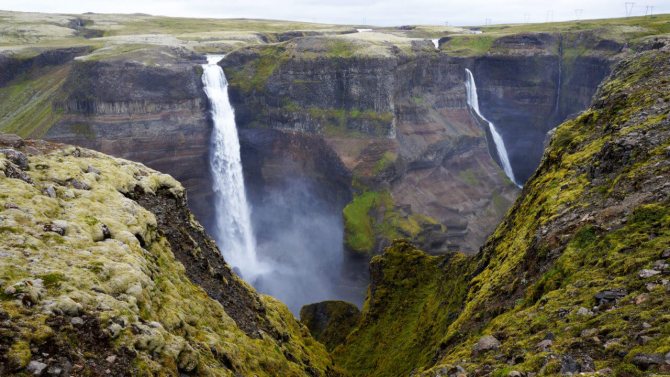
This is the best approach. In practice, it is extremely difficult to implement. Here are a few reasons that prevent you from carefully planning everything in advance:
- At the preparation stage, it is difficult to estimate how much time you will spend on a particular place. Everyone has different physical abilities and tastes in relation to attractions. You can plan a schedule for the day, but in fact go through it in half a day, or vice versa, get less than half done in a day.
- Weather. She always makes her own adjustments. Our plans during the trip changed almost every day. Basically, we drove to attractions and spent the night where it didn’t rain. Everything I had planned in advance went down the drain.
Having an independent trip to Iceland behind me, I can now say the following. Planning places to stay overnight in this country is a fool’s errand. The best option is to let everything take its course. We decided on a place to spend the night only in the evening, where we ended up at the end of the day was our home for the next night.
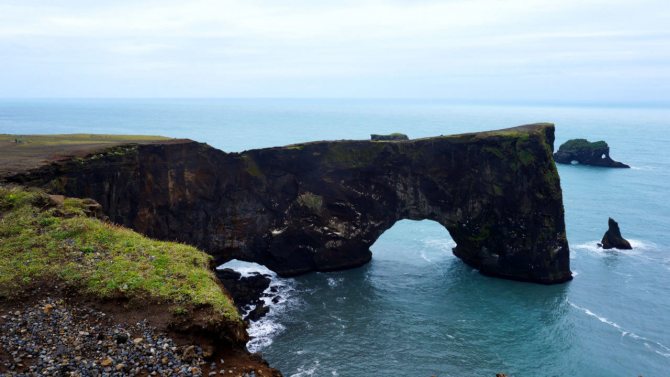
Now that you have already formed an understanding that plans and Iceland are incompatible things, I will review the main housing options on the island.
In total, I will highlight three of them: hotels (guest houses), overnight camping with your own tent, overnight camping in huts. What should you choose? let's go in order.
HOTELS IN ICELAND
When you first open a hotel map in Booking and see the prices, to put it mildly, you are speechless. The average cost for a simple room in a guest house is about 200-300 euros per night, depending on the area of the island.
You can see this very map below (clickable image):
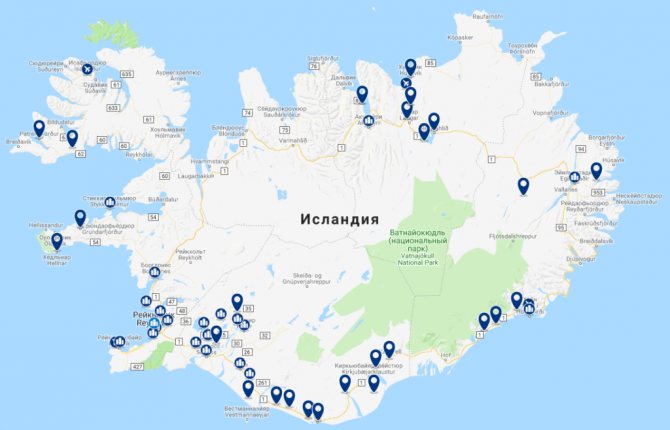
From such prices you involuntarily immediately begin to think about the option of staying in a tent in campsites.
Now that the trip is over, I understand that living in hotels would be comfortable, but absolutely not practical. By booking accommodation in advance in certain parts of the island, you will not be able to change your schedule or make adjustments depending on weather conditions and other factors.
There is an option to book accommodation after the fact. We went to booking at 7 pm, found the nearest available hotel and checked into it. You can do this, just be prepared to pay 300 euros per room.
We only stayed at the guest house once in the entire seven days. This was our first night in Iceland. We booked it for acclimatization in the country, so to speak.
I recommend!
Hotel Skyggnir Bed and Breakfast Booking Rating 9/10
The guest house was called Skyggnir Bed and Breakfast. It seems to me that this is one of the cheapest, but at the same time very decent offers in a quiet, secluded place - Fludir. I can recommend it.
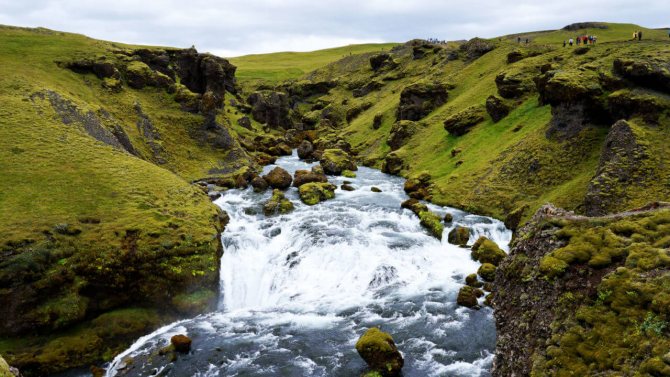
CAMPING IN ICELAND
This is the most popular and sought after accommodation option in Iceland.
To begin with, I want everyone to understand that if you have a tent, this does not mean that you can stop anywhere you want and put it up. This can only be done in specially equipped places - campsites.
So what is camping? What services are offered to guests for their stay?
A typical campsite in Iceland is:
- Well-groomed and equipped area where you can pitch a tent (there are picnic areas, tables with benches, garbage containers);
- Equipped kitchen (separate indoor/outdoor room);
- Toilet. Not a hole in the floor, but a regular toilet with water and washbasins;
- Showers. Several cabins with hot water. Before the trip, I read that in some campsites this is a paid service. Where we stayed, showers were free and unlimited;
- Separate warm houses for rent with their own shower and toilet;
- Reception with an attendant who accepts payment and can tell you about the surrounding area, what and how to see.
This is a general description of camping in Iceland. Some have everything listed above, some don’t. Here I will not review the places where we spent the night. You can find this information in the description of our route.
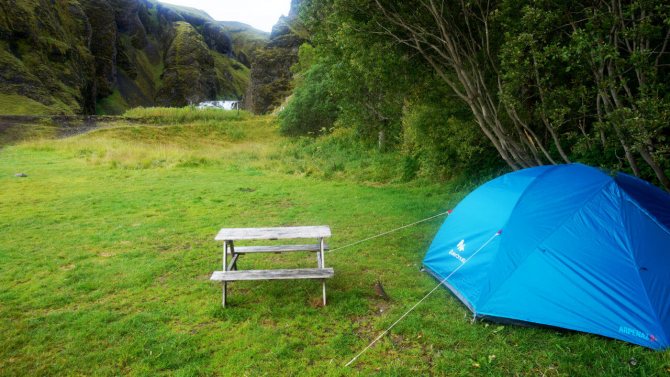
Payment for camping
Yes, they are not free. You have to pay for the amenities that are on site. Depending on the location, the cost will be from 1,500 to 2,500 ISK per person. Bank cards and cash are accepted for payment. Everything is based on your honesty. We arrived in the evening, went to the reception and paid. No one will grab you by the hand and force you to pay.
We spent a couple of nights at the campsite when it rained non-stop. The reception was always closed, we stayed for free.
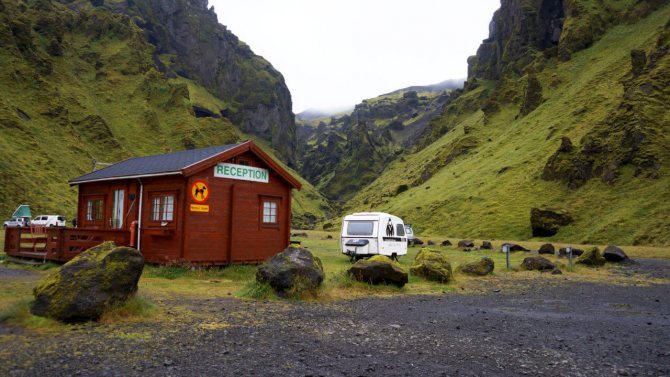
Camping map
There are quite a lot of campsites on the island; I publish the ones I know on the map below:
Surely this is not all and something has escaped my attention. But I think more than 80% are accurately represented.
Camping Card
If you are already a little “savvy” in organizing an independent trip to Iceland, then you have probably heard about the Camping Card. For everyone else, this is a card that provides access to campsites of the Camping Card network of the same name.
It was created to save money and simplify calculations. You can read more about it on the official website.
The benefits of this card and the advisability of its use are very doubtful. We didn't use it for several reasons:
- The Camping Card only covers part of the campsites in Iceland. For example, we stayed at 4 different campsites and none of them belonged to this network;
- The cost of the card for two people is about 100 euros. We paid only 80 for 5 nights.
Actually, decide for yourself whether its use is beneficial or not.
Camping opening hours
One final note. Camping in Iceland starts on May 1st and ends on November 1st. Not everyone has this schedule. Some, located in hard-to-reach places, can only work in July-August. But the best time to go to Iceland is during these summer months.
In any case, I advise you to check the dates of your trip with the opening hours of the campsites.
OPTIMAL ACCOMMODATION IN ICELAND
Under this loud title, I want to express my subjective opinion regarding this issue.
I believe that for an ideal trip you need to combine all three types of accommodation.
I recommend spending the first and last night on the island in hotels. You can plan with some precision where you will be at the beginning of the trip and at the end. Comfortable living conditions will help you acclimatize faster on the first day, and at the end of the trip, relieve accumulated fatigue from “tent life.”
Spend all other nights in Iceland in campsites. Don't be afraid, this is a completely comfortable and safe option for living. It gives you incredible freedom of movement around the island, you will not be tied to a place, you will spend the night where the evening found you.
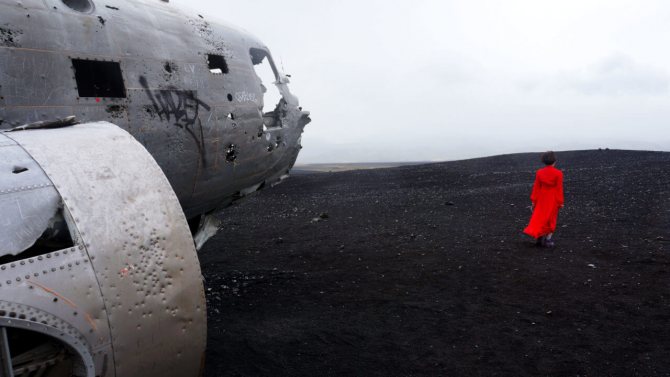
Cabins in campsites. If you are tired of a tent after a couple of days and want comfort, rent an individual cabin at the campsite. It does not require advance booking. and in terms of comfort it is not much inferior to guest houses in Iceland. True, you will have to pay quite a lot for it, from 20,000 ISK. You can also rent a bed in a four/six-bed house.
Immigration methods
There are many ways to immigrate to Iceland. They are available to migrants of various categories - highly qualified specialists, students, businessmen, refugees, etc. All options are accompanied by certain difficulties, but if all requirements are met and a competent approach is taken, it is quite possible to cope with them.
Professional immigration
This is not the most popular way to enter Iceland. In turn, it includes the following options:
- Employment under a labor contract. This is mainly available to specialists in narrow specialties.
- Hiring unskilled workers when there is a labor shortage in the country.
In general terms, labor immigration to Iceland is no different from moving to any other country. The main thing is to find an employer, receive an invitation to work from him and sign an employment contract. You will also need to obtain a work visa. After meeting all the requirements, you can submit a request for a residence permit. Another plus is that an immigrant can move to Iceland with his family (spouse, children), and after living in the country for more than 7 years, obtain citizenship.
But even here it will not be without difficulties. The employer must prove to the authorities that there are no candidates for the given position among natives of the country or immigrants from the EU.
Education
The advantage of this method of immigration is the reasonable price of training. To join the ranks of students, it will be enough to pass a language proficiency exam and receive the appropriate certificate, choose an educational institution and enroll in it. After this, the student must pay for one year of study and provide proof of his financial viability. Having received a visa and entered the country, the student receives a temporary residence permit for the entire period of study. During your studies, you are allowed to officially get a job and stay in Iceland. Having lived in the country for more than seven years, you can obtain citizen status.
Business immigration
Running your own business cannot serve as a basis for obtaining a residence permit. When opening a business, a foreigner receives a multiple visa, with which he can stay in the country for a long period of time. There are no restrictions on doing business for natives of EU countries. But immigrants from other countries are not allowed to join such areas as:
- Fishing in Icelandic waters.
- Extraction and use of natural energy resources.
- Airlines.
To open your own business or make investments in the country’s economy, you must contact the Ministry of Commerce and submit your business plan or application for investment.
Marriage to an Icelandic citizen
This method of immigration is the easiest. By marrying a citizen of the country, you can immediately obtain a residence permit. You can obtain Icelandic citizenship after 5 years of continuous residence in the country, 4 of which are married. Another way is family reunification. It is available to minor children of Icelandic citizens and elderly parents. It is for this reason that many immigrate to Ireland as families.
Refugee immigration
Asylum seekers in Iceland rarely receive a negative response. The migrant only needs to prove the fact of persecution in his homeland, and that this really threatens his life. To obtain citizenship, a migrant must live in refugee status for only three years.
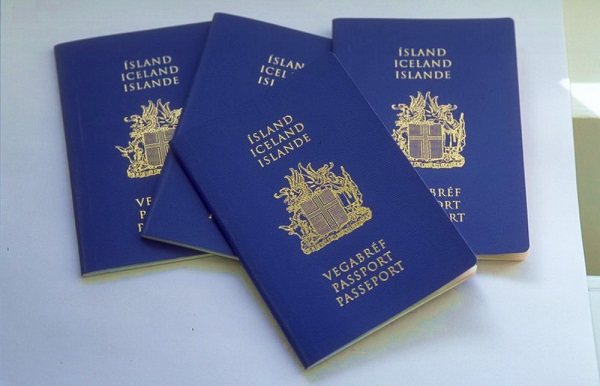
Purchase of real estate
According to Icelandic law, a foreign citizen has the right to purchase real estate, but not land. Land plots here are not sold, but are provided for rent. Otherwise, this method of moving to Iceland is quite simple; you only need to have the funds to purchase a real estate property. Having completed all the documents for the property, you can submit an application for a residence permit.
Immigration of pensioners
This option is suitable for seniors over 66 years of age whose adult children are Icelandic citizens and are able to provide for their parents. After seven years of cohabitation, they are eligible to apply for citizenship. However, in practice this is extremely rare. Therefore, it is not recommended to consider this method of immigration.
Immigration of children
The option of moving children to their parents is not the most common. In most cases, families move together immediately. To use this method, the following conditions must be met:
- The child's parents must reside legally in Iceland.
- The child's age must not exceed 18 years.
Iceland is looking for grooms and is ready to pay each immigrant $5,000 a month
I hasten to disappoint with a candidate with “solid dignity” for the role of grooms for Icelandic brides! By simply following the links according to the following scheme: mmgp.ru (posted here above) - then to the source and this is the site Dialog.UA - then from there a link is given to “Ukrainian Service 1492” where under the heading: “Let's get married: Iceland pays $ monthly 5,000 migrants marrying Icelandic women” and this note was posted on September 17, 2021 and at the end there was a note: “Translated by the editors of “Ukrainian Service 1492″ based on materials from Sunday Adelaja’s Blog” - and then there are no links to the blog we just searched on Google and ended up on this very “Sunday Adelaja's Blog” - and what do we see in the end? And we see that the three “chicks” standing in the photo (not to mention the rest of the better half of Iceland, it’s just gloomy!), unfortunately, remain without their expensive “bulls” and this despite the fact that they are from the very North! Africans! What more arrogance! (We will complain to the UN! To this very thing - what’s his name? In short, to the main one!)
Translation by Google (I didn’t bother with the processing - if you figure something out - the tea is not children!) “SundayAdelajablog has, however, discovered that there is no truth in this story, as the latest population data for Iceland actually shows slightly more men than women in Iceland, with 1,007 men per 1,000 women overall; in Reykjavik, there are 985 men for every 1,000 women, but in rural areas the ratio is 1,129 men for every 1,000 women.
We recommend reading: You bring your pension home if you haven’t received it
Obtaining a residence permit
Anyone who entered the country legally on a long-term visa has the right to apply to the Immigration Department for a residence permit. Having a residence permit, a foreigner has almost the same rights as native residents and receives a guarantee of social protection.
To obtain a residence permit, you must correctly prepare the following documents:
- international passport;
- 4 photos;
- documentary basis for obtaining status;
- certificate of absence of serious diseases;
- certificate of good conduct;
- bank statement as proof of financial solvency;
- contract with the employer (for labor immigration);
- confirmation of place of registration in the country;
- receipts for payment of all duties and fees.
Documents must be translated into the official language of Iceland.
Reasons for refusal
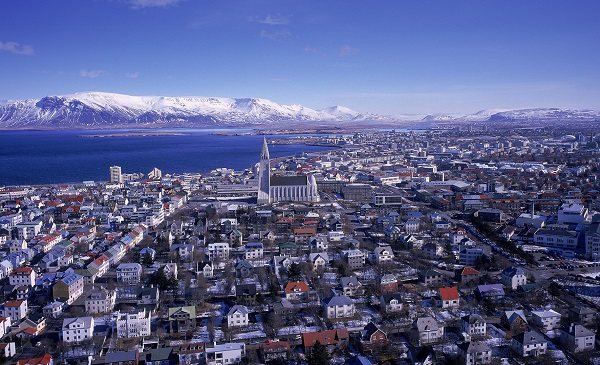
You can be refused a residence permit on the basis of compelling reasons. These include:
- Problems with the law, criminal record. Icelanders have a particularly negative attitude towards serious and property crimes.
- Insufficient financial viability of the applicant, such that he will not be able to live according to the accepted standard of living in the country. Icelanders spend from 50 euros per person daily. This is considered a minimum spending threshold.
- Violation of Icelandic migration laws, other problems with Icelandic legislation.
- Lack of some basic or additional documents.
Icelanders will definitely announce the reason for the refusal, and if this is possible, then you can try to fix the problem and try to request a residence permit again.
Obtaining permanent residence
After three years of official residence in the country, an immigrant has the opportunity to apply for permanent residence. To do this you need:
- speak Icelandic at a conversational level;
- provide proof of permanent residence in the country (employment, family reunification, marriage to an Icelandic citizen, education, etc.);
- have your own or rented housing.
You can stay as a permanent resident of Iceland for a maximum of four years, after which you can obtain citizenship.
How to obtain citizenship
To become a citizen in Iceland you must meet one of the following criteria:
- successfully undergo the naturalization procedure, i.e. live in the country for 7 years and join Icelandic society;
- have both Icelandic parents;
- be an illegitimate child of an Icelandic citizen.
The main condition for obtaining Icelandic citizenship is the absence of criminal records and other problems with the law. Otherwise, immigration is simply impossible.
Principle of legalization
The procedure for obtaining citizenship always takes a long time and requires preparation. The following sequence can be designated:
- Purchasing a visa - Schengen or national is allowed. To do this, you should contact the consulate or embassy. The waiting period will take up to two weeks. A multiple visa is issued for a period of five years;
- Obtaining a residence permit occurs in different ways: through employment, marriage or study. It is better to start dealing with this issue immediately after arriving in the country;
- Registration of permanent residence - at least you need to stay in the state for three years and fulfill the conditions put forward by the country;
- Granting citizenship - for this you need to live in Iceland for seven years and create a solid foundation for your future.
Read also: Is it worth moving to Kaliningrad
Double citizenship
If earlier immigration to Iceland was not popular due to the inability to have dual citizenship, now, or rather since 2003, some changes have occurred in the state. And according to the adopted innovations, citizens of the country received the right to obtain dual citizenship. This means that when immigrating to Iceland and obtaining citizenship here, a foreigner has the right not to renounce his former status. For this reason, foreigners have become more interested in Iceland.
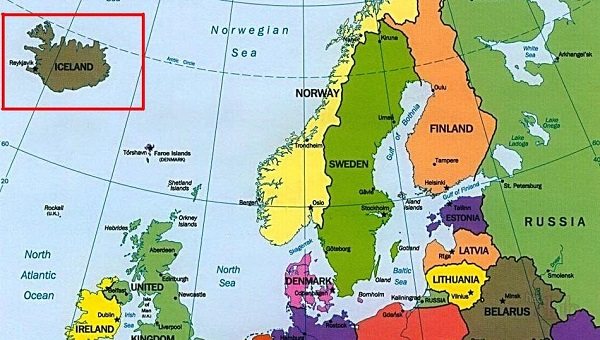
According to suitcases
Immigration to Iceland through the purchase of real estate is not very realistic, since the purchase of real estate in the country does not give the right to a residence permit. But if you combine this method with any other, the chances of getting a residence permit will increase - so, a business immigrant with his own real estate has a non-zero chance of getting the coveted residence permit. The procedure for purchasing Icelandic real estate is not complicated - realtors will do everything, and the immigrant will only need to sign the necessary papers. You just have to keep in mind that foreign citizens cannot buy land, as in many other countries - they can only take it on a long-term lease. Also, when purchasing their first property, an immigrant can take out a mortgage loan from an Icelandic bank without additional fees, however, only if the estimated value of the purchased property exceeds the equivalent of one hundred thousand euros.
Iceland is a small but very prosperous country located far in the north. For many years now, it has been firmly at the top of the list of the most prosperous and most pleasant countries to live in, so settling there legally is not so easy. However, immigration to Iceland can be a big step along the road that will ultimately lead the emigrant to prosperity. There are several ways to immigrate to this country.
We recommend reading: Receiving the lost pension of a deceased pensioner
Pros and cons of living in Iceland
Moving to Iceland comes with both positive and negative aspects.
| Advantages | Flaws |
| High salaries and social benefits | Strict migration policy |
| Clean ecology, picturesque nature | High prices for rental housing |
| Low crime rate | High prices for products |
| Quality education and health care | Cold climate |
| It's easy to get refugee | A measured pace of life without much change of events |
To sum it up, we can say that moving to Iceland is not an easy task. Local authorities are reluctant to accept migrants; there is no shortage of labor here. But if you wish, you can fulfill all the requirements and obtain residency of the country.